Maya Nazareth got into Brazilian jiu-jitsu in her teens and immediately noticed something: the gear sucked. At least for women.
The rash guards were short and would ride up during rolls. The leggings were often see-through. Some pairs didn’t stay on her waist. Others bunched up behind the knees or slipped down when she moved. Even the fit felt off—tight where it shouldn’t be, loose where it shouldn’t matter.
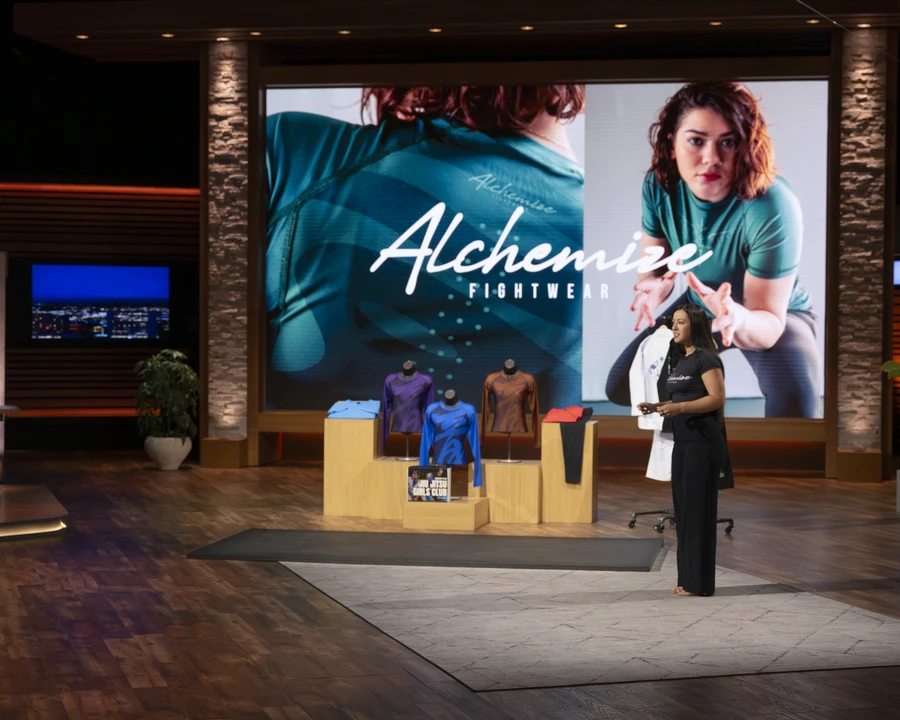
She was still in college when the idea hit her. It started as a project—just a better rash guard. One that stayed in place. Fit better. Looked good. Felt good. She tested her first version on herself, then on teammates. It worked. So she made more.
Soon she was showing up to practice with gear in the trunk of her car. After class, someone would ask what she was wearing. She’d pop the trunk. Some days she sold out.
The name came later: Alchemize Fightwear. The goal was simple. Make gear that actually worked for women. Not pinked. Not shrunk. Not adapted from something built for someone else’s body.
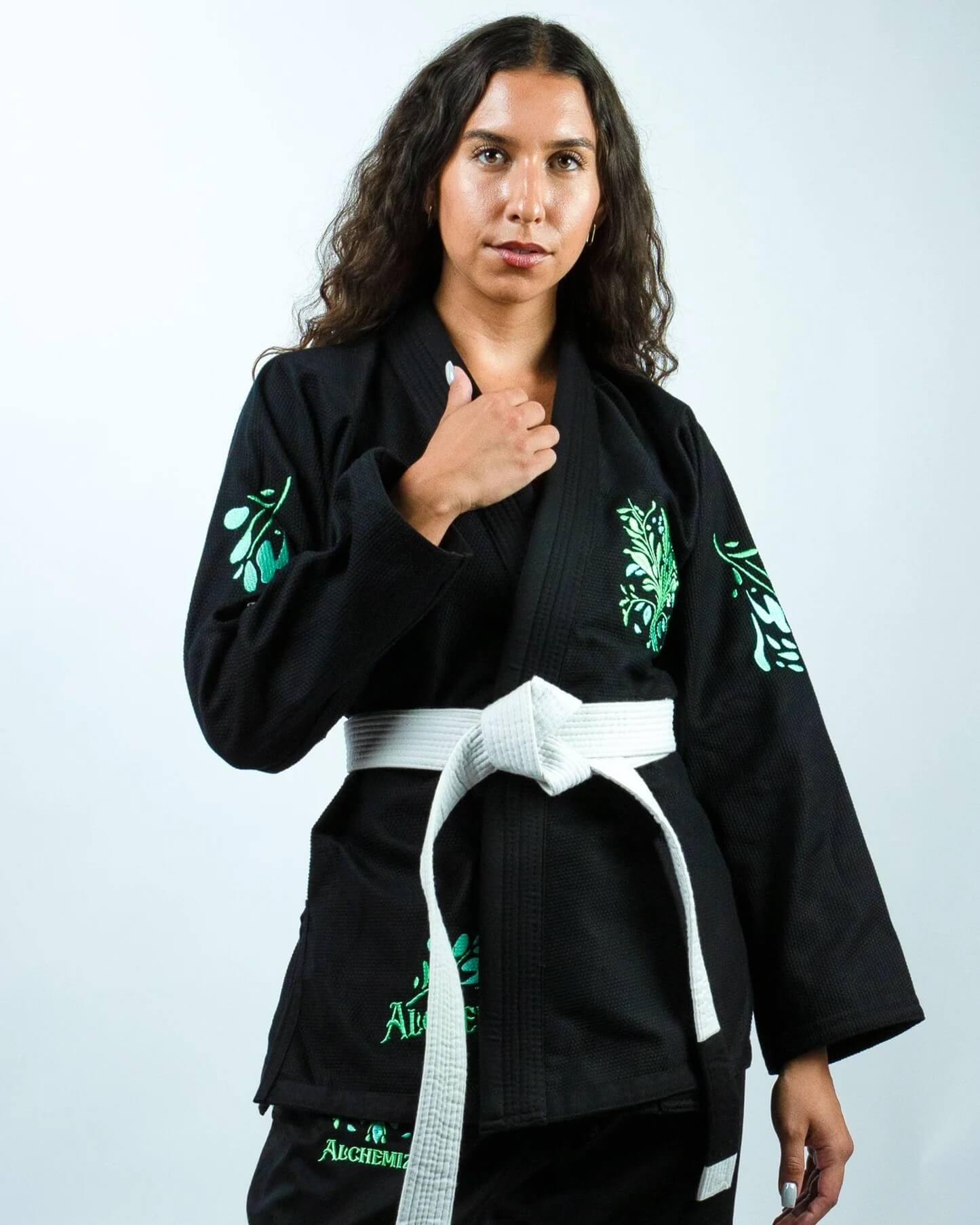
The details came straight from the mats. Rash guards are longer than usual and lined with a thin silicone band so they don’t roll up mid-roll. Spats stay high on the waist. Nothing’s see-through. Singlets have built-in bras and thicker chest coverage because no one wants to flash their teammates mid-match. The seams are reinforced. The fabric stretches and dries fast. Maya didn’t just design for style or slogans—she designed around the stuff that made her feel uncomfortable during class.
And she didn’t guess. She asked. She talked with dozens—eventually hundreds—of women who trained, wrestled, sparred, and grappled. What gear failed you? What do you wish existed? What did you have to alter or fix yourself?
Then she tested everything again. New products went through hard sparring before they ever went up for sale. If something failed—rode up, ripped, slid down—it went back to the drawing board.
In 2020, Maya turned her apartment into the company. Literally. Inventory was stacked next to her bed. She ran Alchemize while finishing her degree. She took part in a university accelerator program and used the summer to build the brand.
She sketched. She emailed suppliers. She figured out sizing. She built the website. She talked to factories. She packaged the orders herself. First few batches went to friends, teammates, strangers on Instagram. Then the orders kept coming.
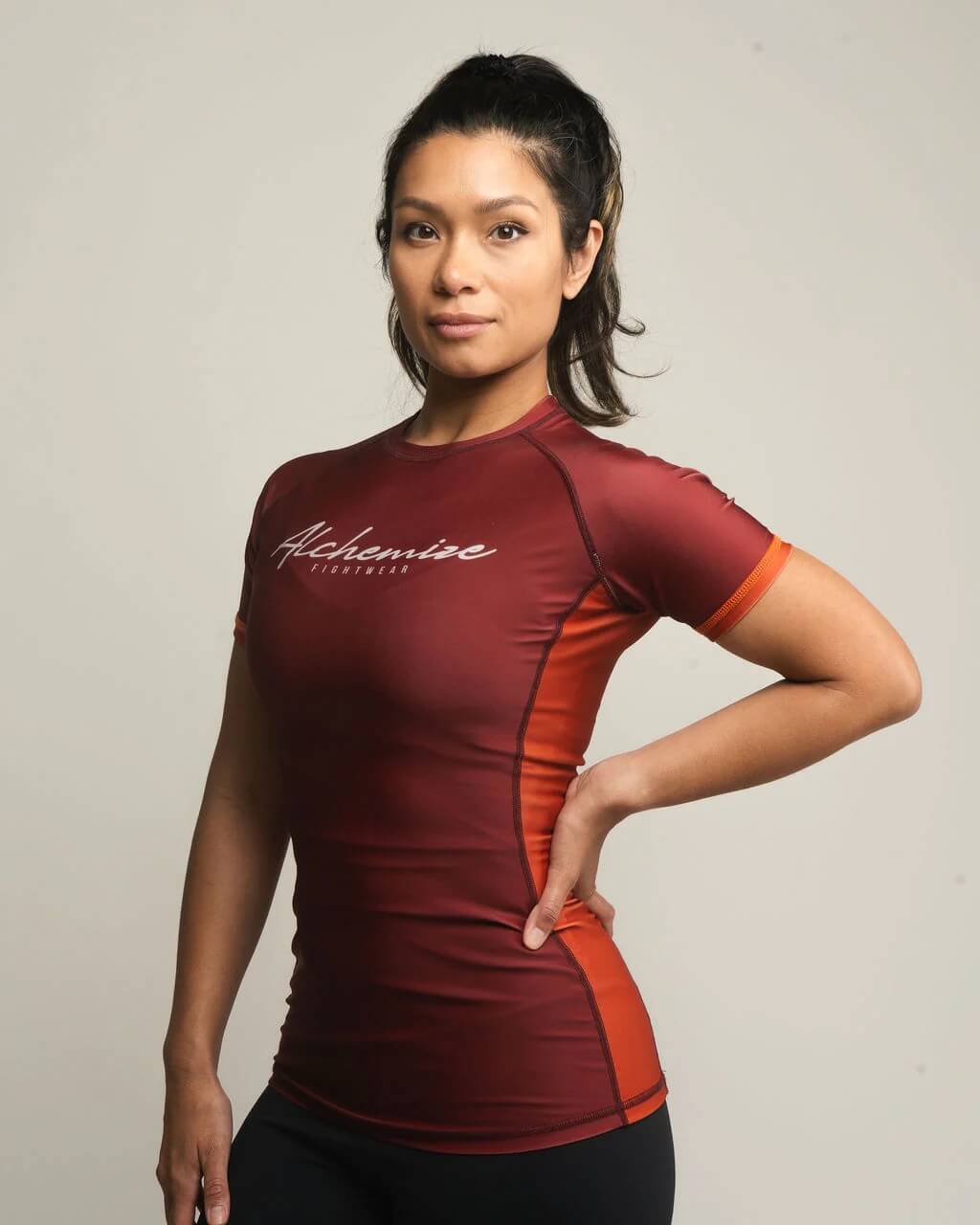
Within a year, Alchemize was shipping across the U.S. Within two years, orders were going out globally. They hit 10,000 sales by 2023. Not bad for a company that started with one rash guard and a college student in a gi.
Alchemize isn’t just for Brazilian jiu-jitsu anymore. They’ve expanded into MMA, wrestling, boxing—any combat sport where women train. They still sell rash guards and grappling shorts, but also spats, gi sets, singlets, sports bras, hoodies, and off-mat wear.
Everything’s built on what they call “Female Fighter Fit.” It’s not a sizing chart, it’s a design process. Maya collected data from thousands of women—measurements, fit feedback, post-roll complaints—and turned it into patterns and fit models that actually reflect how women move when they fight. Not when they jog. Not when they pose. When they roll.
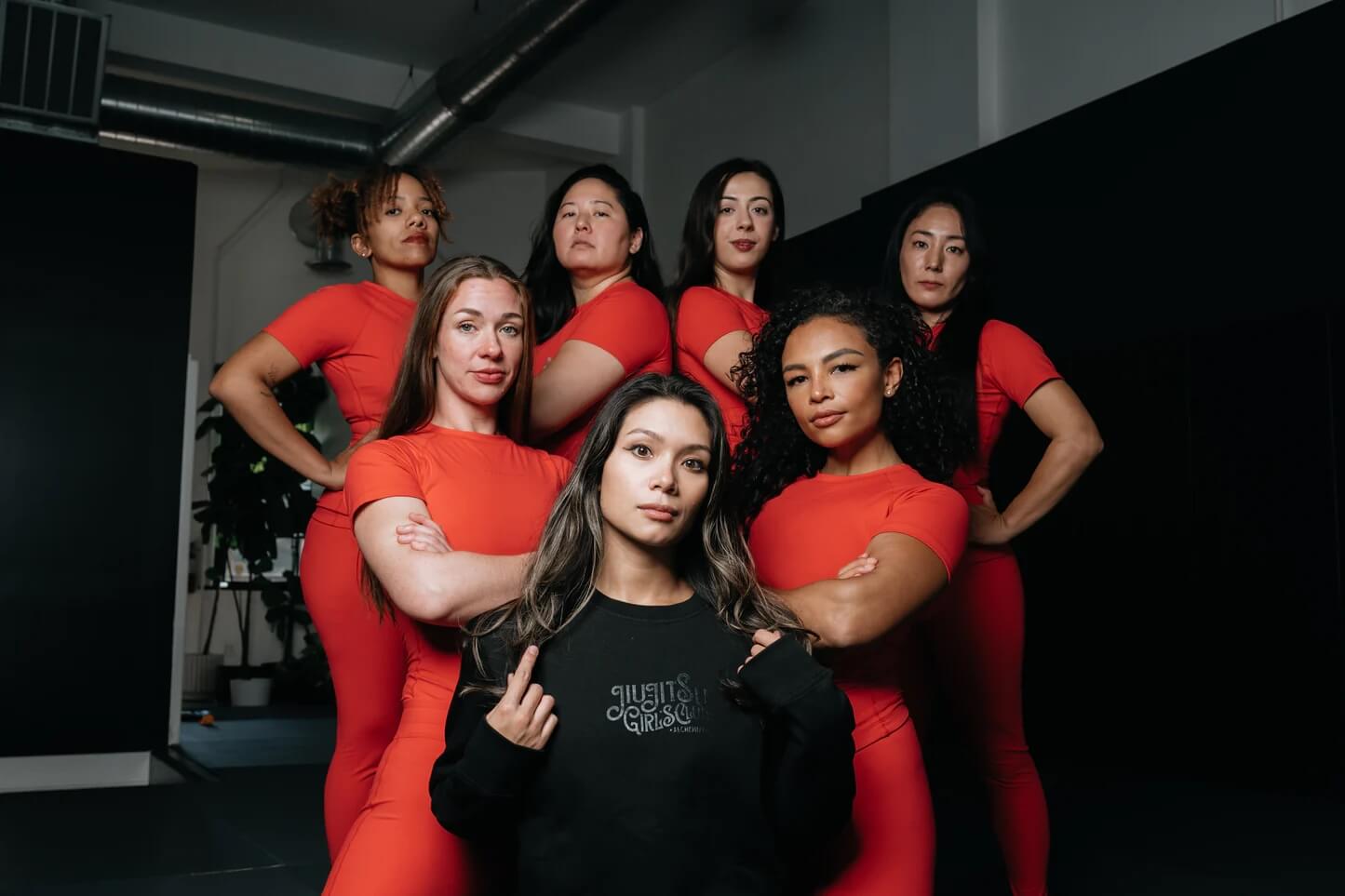
Alchemize isn’t just a clothing brand. Maya wanted it to be a space. For women who train. For women who fight. For women who don’t feel like they belong in most gyms, and are sick of feeling invisible in a sport they love.
They run women-only jiu-jitsu camps—weekends of rolling, coaching, and building confidence on and off the mats. They host free self-defense seminars at their Philly HQ. And a portion of profits goes to organizations supporting survivors of domestic violence.
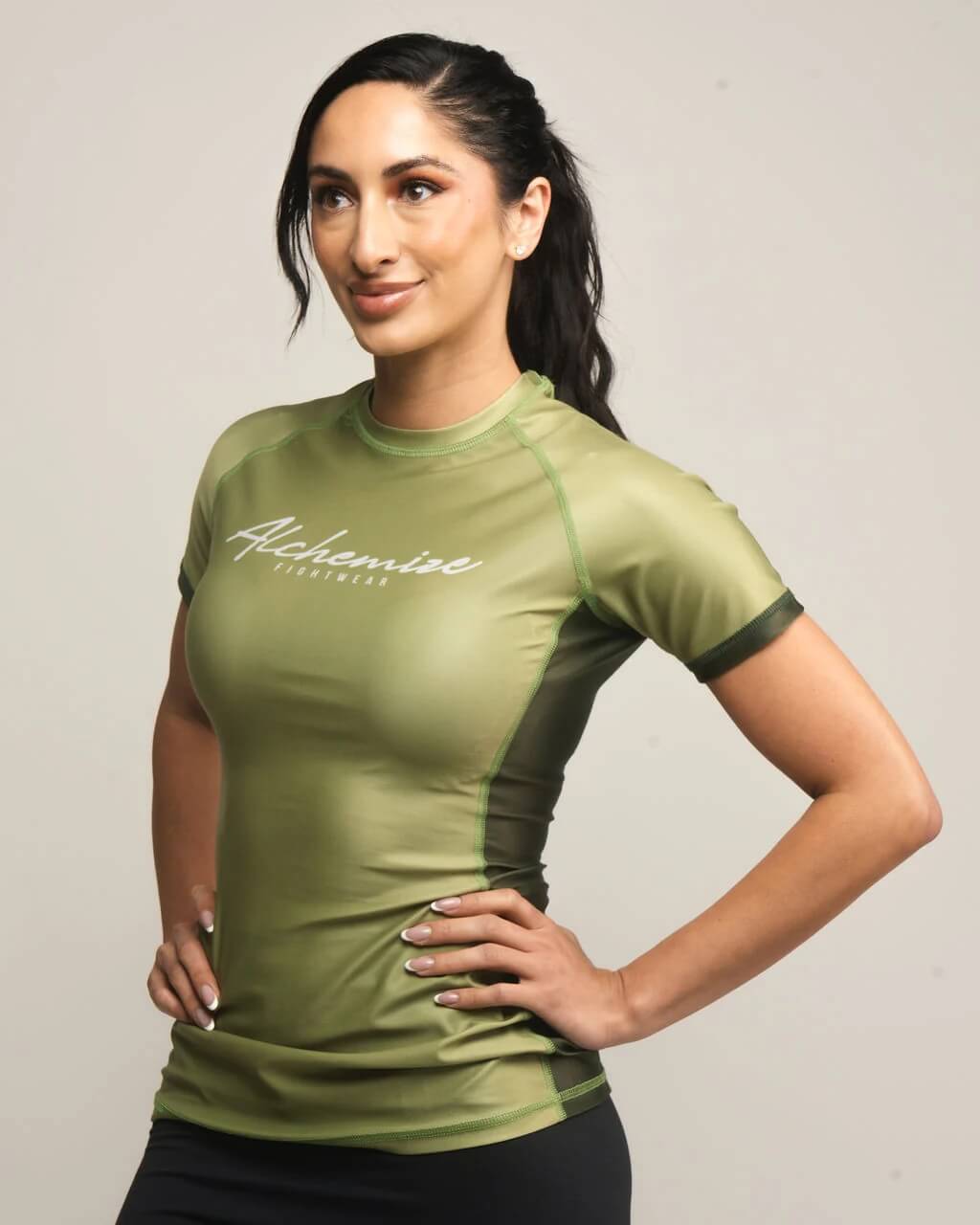
It’s not just a business move. Maya’s been open about why she started this. She wanted women to feel powerful, not exposed. Supported, not ignored. Gear is just one piece of that.

